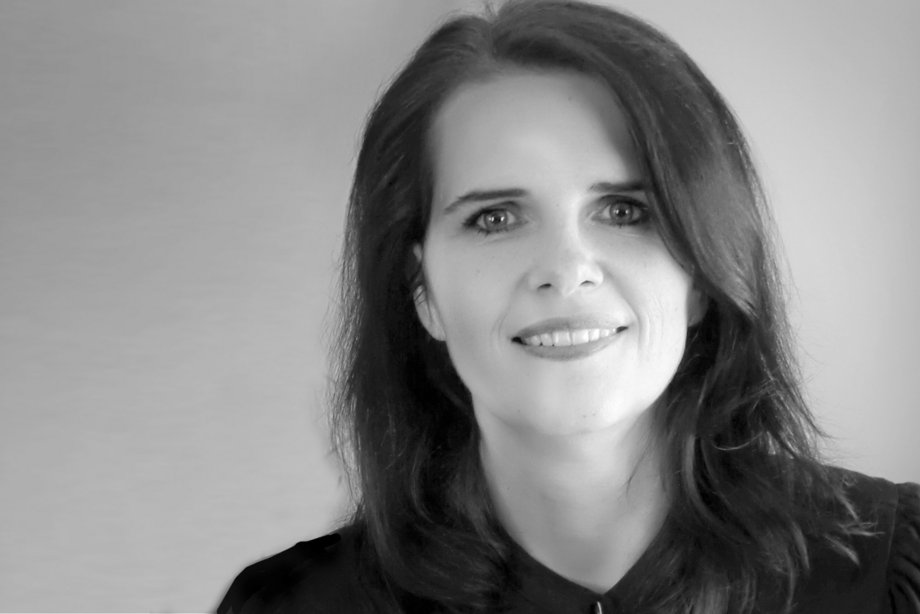Akademische Mitarbeiterin

Dr. rer. nat. Kati Nowack
Lehrgebäude 3A, Raum 348
T +49 (0) 355 69 3243
F +49 (0) 355 69 2150
E-Mail
Vita
Kati Nowack, seit 2015 Akademische Mitarbeiterin am Lehrstuhl für Angewandte Medienwissenschaften an der BTU Cottbus; 2016 Promotion (Dr. rer. nat.) am Lehrstuhl Kognitive Psychologie der Humboldt-Universität zu Berlin; 2019 bis 2022 Stipendium des PostDoc Network Brandenburg; Forschungsschwerpunkte: Einfluss von Persönlichkeitseigenschaften (z.B. individuelle zeitliche Orientierung) auf Medienselektion und Medienrezeption, Medienpräferenzen, medienvermittelte Interaktion; Aktuelles Forschungsprojekt (Habilitation): "New Media – a new Me? The impact of individual differences and self-concepts on how we interact with media today". Weiteres Forschungsinteresse: empirische Ästhetik.
Publikationen
About time: individual temporal orientation, time succession, and cognitive capacities. Dissertation. Edoc Publikationsserver https://edoc.hu-berlin.de/handle/18452/18187.
Beauty in the eye of the self: novices’ aesthetic art preferences, stimulation potential, and self-concepts. Current Psychology, 2024, Volume 43, Issue 39,https://doi.org/10.1007/s12144-024-06832-6.
From inglorious basterds, aliens, and hobbits: The structure of fictional film genre preferences and its relationship with time perspective and individual time span orientation. In: Karen Shackleford (Hg.): Psychology of Popular Media, 2024, Volume 13. Advance online publication, https://doi.org/10.1037/ppm0000520.
The Individual Time Span Scales (ITSS): Introducing a self-report questionnaire to measure individual differences in the perception of time as duration. Personality and Individual Differences, 2023, Volume 206, 112116, https://doi.org/10.1016/j.paid.2023.112116.
More is Up - Important is Central: Impact of Developmental Origin of Image Schemas on Touch and Gesture Interaction with Computers. International Journal of Human-Computer Studies, 2018, Volume 120, 94–106. https://doi.org/10.1016/j.ijhcs.2018.08.001.
The Synchrony Effect Revisited: Chronotype, Time of Day, and Cognitive Performance in a Semantic Analogy Task (Joint Paper with Elke van der Meer). Chronobiology International, 2018. https://doi.org/10.1080/07420528.2018.1500477.
Some Design Aspects of a Cognitive User Interface. (mit Markus Huber, Matthias Wolff, Werner Meyer, Oliver Jokisch) Online Journal of Applied Knowledge Management, 2018, Volume 6(1), 15–29. Dieser Forschungsbericht wurde ausgezeichnet als Best Research Paper by the Knowledge Management Conference 2018: pdf.
Unfinished sympathies: Influence of individual temporal orientation on music preferences. Psychology of Music. May 28, 2018, https://doi.org/10.1177/0305735618775200.
WoOF: Ein Framework für Wizard of Oz Experimente (mit Markus Huber, Werner Meyer, Peter Geßler). In Oliver Jokisch (Hg.): Tagungsband, 27. Konferenz Elektronische Sprachsignalverarbeitung, Leipzig, 02.-04.03.2016, Bd. 81, Dresden: TUDpress 2016, S. 127–134.
Impact of chronotype and time perspective on the processing of scripts (Joint Paper with E. van der Meer). International Journal of Psychophysiology, 2014, 92(2), 49–58. https://doi.org/10.1016/j.ijpsycho.2014.02.004.
Cooking from cold to hot: goal-directedness in simulation and language (Joint Paper with T. Welke, S. Raisig, G. Schaadt, H., Hagendorf and E. van der Meer). Cognitive Linguistics. Advanced online publication (2014). https://doi.org/10.1515/cog-2014-0058.
Semantic Priming of Progression Features in Events (Joint Paper with T. Welke, S. Raisig, G. Schaadt, H., Hagendorf and E. van der Meer). Journal of Psycholinguistic Research 44, 2014, 201–214 . https://doi.org/10.1007/s10936-014-9290-x.
Are larks future-oriented and owls present-oriented? Age- and sex-related shifts in chronotype–time perspective associations (Joint Paper with E. van der Meer). Chronobiology International, 2013, Vol.30, No.10, 1240–1250.
Future versus Present: Time Perspective and Pupillary Response in a Relatedness Judgment Task investigating temporal event knowledge (Joint Paper with T.L. Milfont and E. van der Meer). International Journal of Psychophysiology, 2013, 87, 173–182.
When You Can’t Have What You Want. Measuring Users’ Ethical Concerns about Interacting with AI Assistants Using MEESTAR. In: Peter Klimczak, Christer Petersen (Hg.): AI – Limits and Prospects of Artificial Intelligence. Bielefeld: Transcript 2023, 163–193.
A quantum cognition model for learning by difference (mit Günther Wirsching, Peter Klimczak). In: 10th IEEE International Conference on Cognitive Infocommunications (CogInfoCom), Naples (Italy), October 23-25, 2019.
Zeit aus interdisziplinärer Sicht und die Integration zeitlich-semantischer Konzepte in die Modellbildung von Coping-Strukturen (mit Peter Klimczak, Günther Wirsching und Ronald Römer). In: COGSYS 2016, 8pp.
Seven cognitive secrets that make you smarter (mit Elke van der Meer). In: Manfred Schönebeck, Ada Pellert (Hg.): Von der Kutsche zur Cloud - globale Bildung sucht neue Wege. Das Beispiel der Carl Benz Academy. Wiesbaden: Springer VS 2016, S. 315–332.
Primärmetaphern als Entwicklungsgrundlage minimal arbiträrer, intuitiv verständlicher Feedback-Icons. UCUI-Statustreffen, Agilion GmbH, Chemnitz, Januar 2018. (gemeinsam mit Daniel Bühler)
More Is Up, Important Is Large: Primary Metaphors as a Source for Designing Intuitively and Universally Understandable Interface Pictograms. CAx: Dimensions of Computer-Aid in Architecture, Biological Sciences, Design and Medicine, Exzellenzcluster Bild Wissen Gestaltung, Helmholtz-Zentrum für Kulturtechnik Berlin, April 2017. (gemeinsam mit Daniel Bühler)
